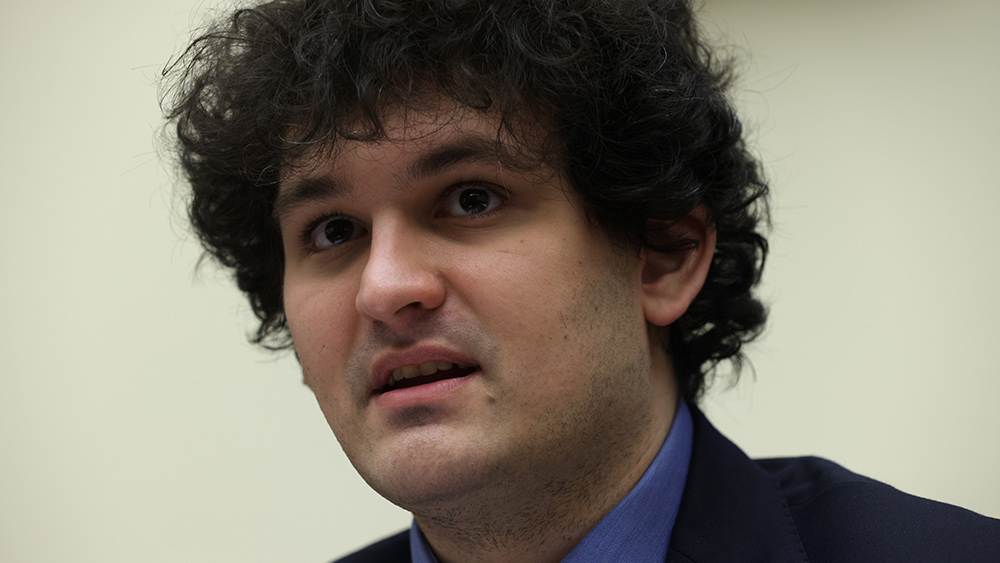US modified its high-tech launch system to prevent Ukrainian military from launching rockets into Russia
The American deep state, for some reason, has a penchant for Ukraine, and it shows in more ways than one.
First and foremost, the Obama administration was neck-deep in the 2014 regime change operation there, which was followed by then-Vice President Joe Biden's son, Hunter, landing lucrative business deals in the country's corrupt energy sector.
And now, the deep state has sided with Ukraine over Russia, as evidenced by all of the Ukrainian flag lapel pins worn by our lawmakers and flag icons on their Twitter profiles -- oh, and the billions we are sending that country in terms of weapons.
But apparently, there has been at least
some restraint in to the manner in which we are helping Kyiv's corrupt, neo-Nazi government: We aren't providing weapons at their fullest capability so as not to give Russia a reason to attack NATO with conventional or, worse, nuclear weapons.
According to The Wall Street Journal, the sophisticated HIMARS guided multiple launch rocket systems the Pentagon has transferred to the Ukrainian army have been modified so that the projectiles cannot be fired into Russia proper.
The outlet explains:
The U.S. since June has supplied Ukrainian forces with 20 High Mobility Artillery Rocket System launchers, or Himars, and a large inventory of satellite-guided rockets with a range of almost 50 miles. Those rockets, known as the Guided Multiple Launch Rocket System, or GMLRS, have been used to strike Russian ammunition depots, logistics supplies and command centers on Ukrainian territory.
But the Himars launchers have a unique feature intended to prevent them from becoming even more potent battlefield systems. U.S. officials say the Pentagon has modified the launchers so they can’t fire long-range missiles, including the U.S.’s Army Tactical Missile System rockets, or ATACMS, which have a range of nearly 200 miles.
The WSJ noted further that the previously unreported modifications to the launchers and the projectiles demonstrate how far the deep state has gone to ensure that its support for Kyiv remains balanced and does not risk escalation with Russia's forces which, truthfully, appear to have their hands full just fighting the Ukrainians. The modifications also ensure that the Ukrainians don't renege on their pledge not to strike Russian territory, though they would be in their rights to do so since Russia is the invader.
The Pentagon, of course, refused to comment on the matter.
“Due to operational security considerations, we do not comment publicly on the configuration of systems provided to allies and partners,” said Air Force Brig. Gen. Patrick Ryder, a Pentagon spokesman. “The United States remains committed to providing Ukraine
the capabilities it needs to counter Russian aggression.”
"To guard against the risk of escalation, the U.S.
secured a commitment from President Volodymyr Zelensky that the launchers wouldn’t be used to strike targets on Russian territory. Ukraine has honored that pledge, which Ukrainian officials say shows Kyiv can be trusted with longer-range weapons," the WSJ reported.
Separately,
the WSJ reported that a trio of Russian airbases was struck inside Russia by Ukrainian drones, killing personnel and damaging aircraft. One attack also ignited a fuel storage facility at the airbase.
"The attack on the Kursk airport, which was closed to civil aviation after Russia invaded Ukraine in February, followed Monday’s strikes on Russian strategic-bomber bases in Engels and Diagilevo. Both bases are hundreds of miles from Ukrainian-controlled territory. Kursk is around 65 miles from the Ukrainian border," the paper noted.
"While Ukraine lacks the kind of long-range cruise and ballistic missiles Moscow has rained on Ukrainian cities for the past nine months, Western officials say that Kyiv has partially offset that asymmetry with attacks on strategic targets deep in Russian territory. Those include the October strike against the bridge linking Russia to Crimea and the August destruction of several military aircraft at the Saki air base," it added.
Sources include:
WSJ.com
NaturalNews.com
 Parler
Parler Gab
Gab










